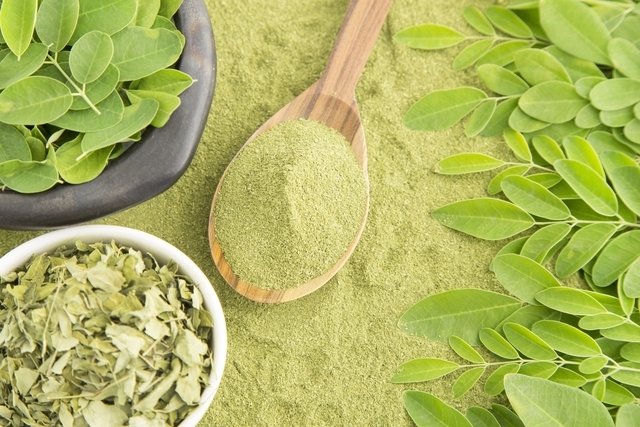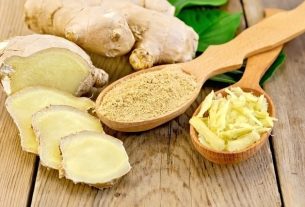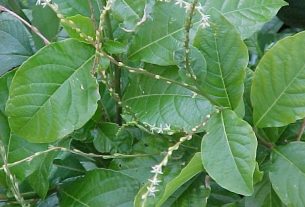A moringa (Moringa oleifera) is a medicinal plant indicated to help control blood sugar levels, assist in the treatment of respiratory problems, protect the liver, reduce muscle fatigue and promote weight loss.
This is because this plant is rich in nutrients, such as iron, calcium, carotenoids, quercetin and vitamin C, as well as active substances such as polyphenols and chlorogenic acid, which give it antioxidant, antidiabetic, analgesic and anti-inflammatory properties.
However, There are still few studies that prove all of its benefits and that describe the minimum doses, as well as its safety for human use. For this reason, in 2019, Anvisa banned the sale of any product containing moringa, precisely because it considered that there were few studies that demonstrated the effective doses and safety of this plant for health.

16 possible benefits of moringa
According to some scientific studies, moringa may be effective for:
1. Increase respiratory capacity
Some studies indicate that this plant appears to be capable of alleviating the symptoms of chronic respiratory diseases, such as asthma, as it helps to increase the concentrations of hemoglobin and, consequently, circulating oxygen in the blood.
2. Prevent diabetes
Moringa has antioxidant properties that can help regulate oxidative stress in the body, which reduces blood sugar levels, as well as protecting the body’s cells.
3. Protect the heart
Because it is rich in fiber, this plant can help reduce the absorption of cholesterol in the intestine and the formation of fatty plaques in the arteries, thus reducing the risk of cardiovascular diseases.
Furthermore, due to its antioxidant effect, moringa can also prevent or reduce inflammation in the body, which contributes to heart health.
4. Regulate blood pressure
Due to the presence of tocopherols, polyphenols and flavonoids in its composition, moringa could help regulate blood pressure, as these substances have a vasodilatory effect, which helps to relax blood vessels and improve blood circulation.
5. Help with weight loss
Moringa is a plant rich in fiber and proteins, which help to increase the feeling of satiety and, consequently, reduce the amount of food and calories ingested, facilitating weight loss.
Furthermore, some studies carried out on animals also indicate that moringa can help reduce the amount of fat accumulated in the body.
6. Prevent and combat anemia
Moringa leaves have a large amount of iron (105 mg per 100 g of leaf), which could promote the formation of red blood cells and increase the amount of hemoglobin in the blood, helping to treat anemia, especially anemia caused by a lack of iron. of iron.
7. Increase the body’s defenses
Moringa has vitamin C, polyphenols and beta-carotene in its composition, which are substances that have the potential to help strengthen the immune system, increasing the body’s natural defenses.
8. Have analgesic and anti-inflammatory effects
Due to the presence of isothiocyanates, quercetin and chlorogenic acid, which are substances that help reduce the inflammatory process, moringa could be used to alleviate the symptoms of inflammatory problems, such as rheumatism and even prostate inflammation, for example.
9. Protect and hydrate the skin
Due to the large amount of vitamins from complex B, C, E and A that it contains, moringa can promote the formation of collagen, in addition to facilitating skin healing and hydration.
10. Improve the gastrointestinal system
Consuming moringa can prevent and help treat stomach ulcers, as well as helping to combat constipation, due to its large amount of fiber.
Furthermore, as it has a vasodilatory effect, moringa could also be used to treat hemorrhoids, as it stimulates blood circulation.
11. Prevent the onset of cancer
Some studies seem to indicate that moringa has an anti-cancer effect, as it appears to stimulate the destruction of cancer cells, mainly in the breast and intestine.
12. Improve vision health
Moringa is rich in beta-carotene, which is a precursor component of vitamin A which, among other functions, is responsible for producing visual pigments that help maintain healthy vision.
13. Decrease menopause symptoms
Since it helps control levels of inflammation and oxidative stress during this period, moringa could help maintain hormone levels during menopause, decreasing the intensity of symptoms. Know how to identify the symptoms of menopause.
14. Preserve bone health
Because it is rich in calcium, moringa serves to maintain the health of teeth and promote the development and maintenance of bone structure, being important to prevent diseases such as osteopenia or osteoporosis, which is a disease that leaves bones weak and can cause fractures. . Find out more about what osteoporosis is and its main causes.
15. Protect the liver
Moringa has antioxidant and anti-inflammatory substances that help maintain liver health, as it improves its functioning and has a preventive and therapeutic effect in cases of fatty liver caused by a diet rich in fat.
16. Reduces muscle fatigue
Moringa has properties that help improve physical performance and reduce muscle fatigue, as it facilitates the mobilization of fat deposits in the body, delaying the depletion of muscle glycogen reserves and reducing the accumulation of substances related to muscle wear, such as lactate.
Therefore, moringa can be recommended for people who do intense training or play sports.
Moringa properties
The possible properties of moringa include antioxidant, anti-inflammatory, analgesic, antidiabetic, vasodilatory, anticholinergic, antirheumatic, antihypertensive, antimicrobial, hepatoprotective and healing properties.
However, it is important to remember that the properties of the plant are still being studied and several results appear to be inconclusive.

Moringa tea
Moringa tea does not include the list of plants approved by Anvisa for consumption and, therefore, should be avoided until new studies prove the plant’s efficacy and safety.
However, experts indicate that people who have a habit of using this plant, and do not wish to interrupt its use, should only consume 2 cups, or 500 mL, of this tea per day, as these are amounts that do not appear to pose a risk to health. .
Other forms of consumption
In addition to tea, moringa can also be found in the form of capsules, seeds or powder. However, These forms are also prohibited for sale in Brazilian territory and should not be used.
Possible side effects
Consumption of moringa can result in some side effects, such as nausea, vomiting and diarrhea.
It is recommended to avoid consuming the root and its extracts without professional guidance, as they contain toxic substances that, when used in excessive concentrations, can cause paralysis and can even lead to death.
Who shouldn’t use
Moringa intake is not recommended for pregnant women and nursing mothers, as this medicinal plant can interfere with both pregnancy and breast milk production. Find out which teas pregnant women can and cannot drink.
People with thyroid problems should also avoid consuming this plant, as it appears to affect the production of thyroid hormones.
Nutritional composition
The following table indicates the nutritional composition for each 100 g of moringa powder:

Sign up for our newsletter and stay up to date with exclusive news
that can transform your routine!
Warning: Undefined array key "title" in /home/storelat/public_html/wp-content/plugins/link-whisper-premium/templates/frontend/related-posts.php on line 12
Warning: Undefined array key "title_tag" in /home/storelat/public_html/wp-content/plugins/link-whisper-premium/templates/frontend/related-posts.php on line 13



